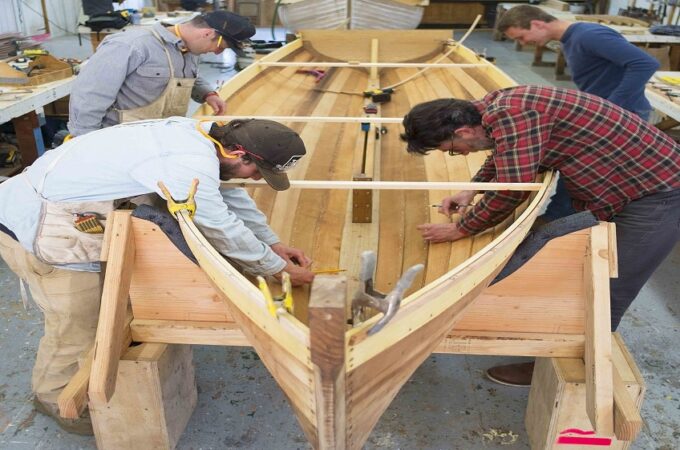
Why field placements are key to a career in counseling
Field placements are a crucial step in the early career path of a counselor. Practical work experience provides important insight into the reality of a career in mental health. Also, it offers the opportunity to apply a wide range of theories learned in the classroom. In addition, it can also help prospective counselors understand more about specific areas of expertise and the type of institution they might want to work in.
This article looks at the general details of field placement work, when students are likely to do one, and what kind of areas they might work in. It also examines why placements are important to students in this area, the best approach to get the most out of the experience, and how it might influence a future career.
A major part of education
In simple terms, a field placement describes the situation where a student is posted to an institution to gain practical experience in their chosen profession. With counseling, these placements often take place in an institution that deals with people suffering from mental health issues, such as a social care facility, mental health clinic, or psychiatric hospital. However, many students also work in other places, such as schools, universities, voluntary organizations, or businesses. The student is typically provided with a list of possible places of work, applies to a select number, and is then allocated a position. They travel to the institute to work under guided supervision. The post is usually for at least one day a week and a period of 3-12 months.
Generally speaking, every prospective counselor undergoes at least one field placement in their study years, usually when completing the first or second year of an MA or Ph.D. Becoming a mental health counselor is a challenging career choice that requires theoretical knowledge and a great deal of clinical know-how, which is why students are expected to build up hundreds of hours of experience. At the American International College in Massachusetts, for example, one can study a MA in Clinical Mental Health Counseling that provides not only theory and research but also field placements to develop one’s abilities in a practical setting.
An intense challenge
One thing that all prospective counselors should be prepared for when they embark on their first field assignment is that, in all likelihood, it will not be easy. After all, there is a world of difference between the classroom experience and finding themselves face-to-face with real-life people with real-life problems. Indeed, the first few days in a mental health work placement can often be a daunting and challenging experience. At the same time, in most cases, the clients or patients are aware that they are dealing with a less experienced member of staff and adjust their expectations and behavior accordingly. There are also – in most cases – knowledgeable staff on hand to assist students in their work. This level of supervised training will help lay the path to eventual independent work as a counselor.
Indeed, earning practical experience and dealing with a wide range of issues in a challenging but supportive environment undoubtedly marks a particularly crucial stage in a counselor’s career pathway. Students will not only be able to put some of their personal ideas that they have developed over their studies and their own experience into practice, but they will also be able to begin to shape their own style in terms of how they relate to clients or patients. Often, counselors will look back on these assignments as the most formative part of their early career.
A pointer toward the future
In addition to providing practical experience and the opportunity to apply theories from the classroom, a field placement can also give students a better idea of exactly where their future lies. Anybody studying to become a counselor usually has a whole raft of questions to answer: “Should I specialize or generalize? Should I work with adults or children, individuals, or groups, families, or couples? Should I move towards humanistic, psychoanalytic, or cognitive behavioral training?” During field placement, one will almost certainly learn more about exactly which direction one would like to take in a counseling career. This is typically a positive experience, where students find a field particularly exciting or intriguing or an environment where they feel entirely at home. In some cases, it also indicates what is not likely to be pursued in the future, which is equally valuable.
In any case, as one gains more and more experience, one can certainly look forward to seeing all previous assumptions about mental health challenged, a great many theories or diagnoses presenting themselves in real-life cases, and the opportunity to meet a wide range of people from all walks of life. In some cases, it can help develop a network of contacts within the mental health profession – including mentors – particularly if one makes a good impression in the role and enjoys communicating with other staff. In fact, students often stay in touch with the people they meet on their placements for many years afterward.
The right time to make the leap
Some degrees, and indeed some professions, are more theoretical, while certain jobs are almost entirely practical, with little time for thinking things through. Counseling, on the other hand, requires a delicate mix of the right human qualities to perform the role, theoretical knowledge, and practical experience in treating a broad spectrum of patients in a variety of settings.
When studying to be a counselor, the field placement or placements form an integral part of the training and serve as an invaluable teaching tool. When the time comes to begin a placement, it is essential to be open to different points of view, ready to learn new ideas, yet courageous enough to embrace the opportunity to apply one’s own knowledge and skills in a clinical environment. If one can do all that, one will have taken an important step on the path to becoming a truly effective counselor.





